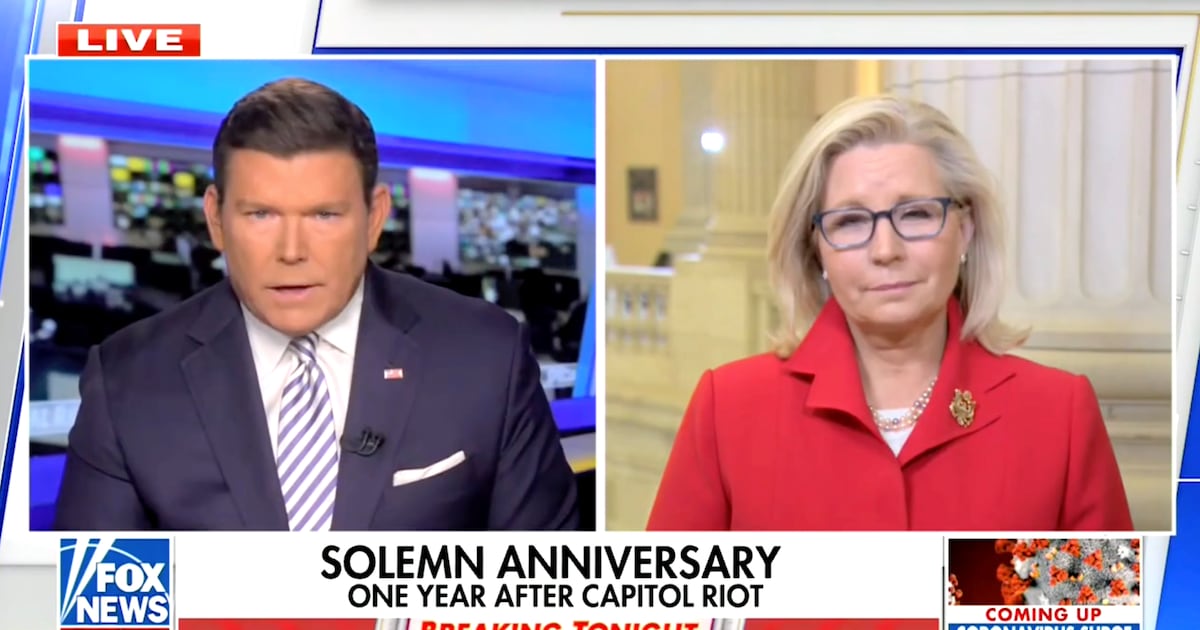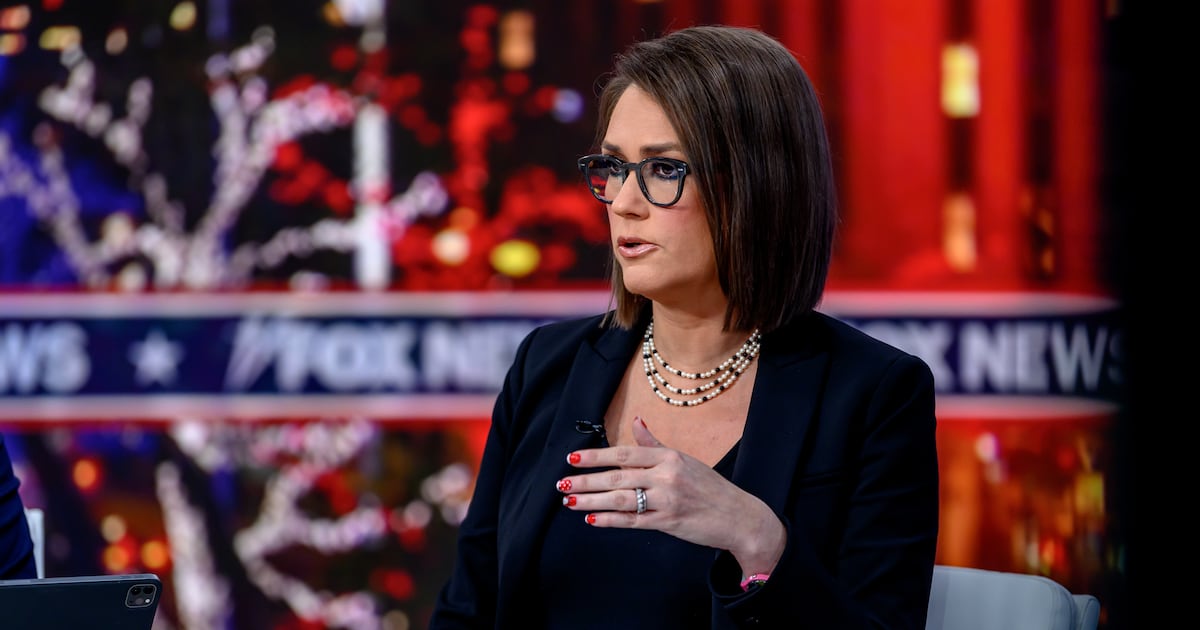“I first met then-President-Elect Trump on Friday, January 6 in a conference room at Trump Tower in New York,” James Comey begins glumly.
What unfolds in the six pages of clear and plain prose that follow is the tragic unraveling of the hopes two people had for each other. It’s a narrative arc anybody who’s been through a breakup or endangered the life of a 240-year-old experiment in democracy will recognize. Reading it, you can practically hear James’ bits being narrated by Woody Allen, over a Gershwin soundtrack. You can feel the temperature cool perceptibly as the sun sets on the American century.
James, a stickler for procedure, is an unexpected match for somebody like Donald, a fast-talking rule-bender with hair like a flaxen flame before a powerful fan. But they found each other in that conference room on January 6. A conference room! If you can believe it! They’ll tell their friends, taking turns, at an imagined New Year’s Eve party in the future.
ADVERTISEMENT
Despite James’ bashfulness, the conversation quickly turned sexual. After all, rumors about Donald’s proclivity for Russian water sports was going around in certain circles. James found it awkward to bring up, but he did, because he is a noble man. Donald, like many men before him, did not seem to understand what he was being told. James grew frustrated.
James was so moved by the strangeness of the encounter that he couldn’t restrain himself from writing about it. He couldn’t even wait until he returned to his hotel room. He did it right in the car, right outside Trump Tower. This President was special. Obama had never made him feel like this. This thrill, this alarm, all of it was new.
Like so many people who are about to go on a date, James did not realize on January 27 that he was about to go on a date. He showed up to a dinner at the White House that more closely resembled a trope on The Bachelor than a meeting between two high-ranking government officials. “... just the two of us, seated at a small oval table in the center of the Green Room.”
Hindsight affords the victims of a doomed relationship the ability to identify the moment things cracked. For James and Donald, that moment occurred during their dinner, alone, in a Green room.
“My instincts told me that the one-on-one setting, and the pretense that this was our first discussion about my position, meant the dinner was, at least in part, an effort to have me ask for my job and create some sort of patronage relationship,” James writes.
This scene also exists in the book Fifty Shades of Grey. Love becomes explicitly conditional, contractual. But unlike the principals in Fifty Shades, James did not consent to what was being asked of him. He was being pushed to give Donald what he wanted. He was the governmental equivalent of a girl in an after-school special about how it’s okay to say no to an older boy who pays for a steak dinner before prom. Fodder for a million incensed articles about how it’s not okay for a president to ask a law-enforcement official for loyalty. Fodder for a moment of icy silence as James realizes he cannot be to Donald what Donald needs or wants. This is the moment, looking back, that James knew the relationship had quietly broken.
“I didn’t move, speak, or change my facial expression in any way during the awkward silence that followed,” James writes. “We simply looked at each other in silence.”
This moment of breaking happens a million times a day, between a million people who are James realizing right this second that their lover is an albatross. It’s happening on a vacation in South America, a man paralyzed by fear over the presence of a large thin-legged spider perched in a dark corner of the ceiling, issuing a scream that forever cools her lust for him. It’s happening in a laundry room in Iowa, a mountainside in Tibet. It’s slowly gaining mass, pulling everything into it, until not even light can escape.
Donald was violating James’ boundaries. James could not promise him loyalty. He could be honest, but not loyal. He felt blurry. He knew the danger that awaited him if he gave in. He decided he would not.
Comey writes, “[Donald] then said, ‘I need loyalty.’ I replied, ‘You will always get honesty from me.’ He paused and then said, ‘That’s what I want, honest loyalty.’ I paused, and then said, ‘You will get that from me.’ As I wrote in the memo I created immediately after the dinner, it is possible we understood the phrase ‘honest loyalty’ differently, but I decided it wouldn’t be productive to push it further.”
There it is, the moment of fatal projection. When he says “I don’t want any more children,” what she hears is that he may one day want children. She decides that’s what he must have meant, although he did not, because she needs him to mean it. Because otherwise they will rot out from the inside. They will both die.
Donald tries to change the subject to sex again, like they’d talked about that first day in the conference room. When they were free to imagine the other was as good as they’d both hoped.
“During the dinner, the President returned to the salacious material I had briefed him about on January 6, and, as he had done previously, expressed his disgust for the allegations and strongly denied them,” James writes. “He said he was considering ordering me to investigate the alleged incident to prove it didn’t happen.”
James explains he couldn’t be to him what he wanted. Donald does not understand.
James tells his friends about how strange it all was. They encircle him. They are worried, too.
The next encounter between Donald and James, the two most ill-suited people in the world for each other, appropriately occurs on Valentine’s Day. But the flourish of the January 27 dinner is gone. There are no guards serving them food. There is no small table for two in the middle of a large room. Just Donald’s friends, who do not seem to understand James, who seem to view him as an inconvenience, who seem hesitant to leave them alone together. Just a terse argument over a desk, from which both parties left confused.
“I hope you can let this go,” Donald tells James.
“I did not say I would ‘let this go,’” James writes.
James leaves in a state of confusion and dismay. He does not want anything to do with this man. The crack has turned into a break. His heart is a lemon.
He tells his friends he is done. He asks his boss to keep Donald away from him. “I took the opportunity to implore the Attorney General to prevent any future direct communication between the President and me,” James writes. The Attorney General, like so many asked to insert himself between people who should not be communicating, could not keep them from communicating.
Somewhere else, a woman is giving her phone to her best friend before a night of drinking. Do not let me text him, she is saying. Later in the evening, she will wrest the phone from her friend and lock herself in a bathroom, tearfully snapchatting Chad photos of her breasts. She will defensively delete his number, but then in a moment of madness find a phone bill from two months ago and memorize it by the words it would spell on an old fashioned phone. She sees no way out.
James, trapped in Washington, trapped in rooms, will duck behind curtains. He will avoid the President’s attempts to forge a friendship. They can’t even know each other; it’s too raw. But the President keeps trying. On March 30, more than a month after the fight over the desk, he calls James again.
On March 30, President wants to talk about the same sex stuff he brought up the first time they met, and over dinner. He wants to talk about hookers and watersports. He has bargained himself down from asking James for “loyalty.” He just wants Comey to do this one thing for him, just this one thing. Just tell everybody that he’s not a bad guy, that the FBI isn’t looking into his personal possible collusion with Russia. He’s innocent. Please, he begs, he’s in a cloud; it’s making it more difficult to do his job.
James, an ice queen, does not acquiesce. It would be unfair to promise something he could not give, but Donald experiences it as cruelty.
Donald calls James again two weeks later, on April 11, the last time the pair will talk. James is infuriatingly resolute. He tells Donald that it wasn’t appropriate for Donald to call him anymore.
“I have been very loyal to you, very loyal,” says Donald. “We had that thing, you know.”
Elsewhere, a man is pressing an envelope between two pages of a book, and placing the book in a box labeled “Ashley’s books.” The box will leave with the truck tomorrow morning. The envelope contains a hand-written note, a detailed description of all the ways in which Ashley broke his heart. He is convinced she will read it one day and feel the pain he is feeling. She will discover the envelope months later as she finally gets to unpacking the box in her new apartment. She will open the envelope and see it is something that he wrote to her. She will tear it into shreds without reading it, and then she will pour herself a drink.





